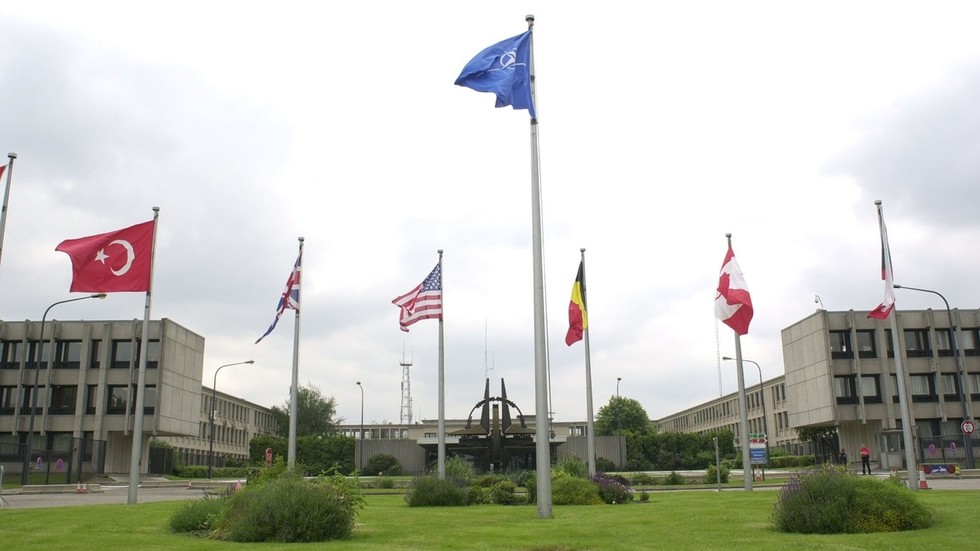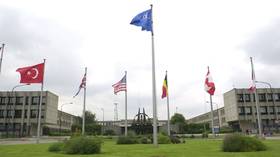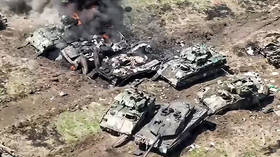
The organization’s budgets for 2024 will be boosted by between 12% and 30%, it has announced

FILE PHOTO: NATO headquarters in Brussels, Belgium. © Paul O’Driscoll / Getty Images
NATO members have agreed to significantly increase the organization’s civil and military budgets for 2024. The extra operational funding has been touted as a sign of solitary within the US-led military bloc.
The spending boost was approved by the governing North Atlantic Council at a meeting on Wednesday, NATO said in a statement. Its civil budget for next year has been increased by 18.2% from 2023, amounting to $477 million. Its military budget will rise by 12% compared to last year, amounting to $2.2 billion.
The NATO Security Investment Programme (NSIP), the third major component of its common spending, will see a 30% annual increase to $1.4 billion in 2024.
“Common funding demonstrates allied solidarity and collective will. In turbulent times, we need this more than ever,” Deputy Secretary General Mircea Geoana said of the budgets.
NATO normally coordinates the contributions of member states in its missions, as opposed to fielding a military force of its own. It has guidelines on the level of defense spending and preferred military hardware, but otherwise participants are technically free to allocate their resources as they see fit, unless the cornerstone clause of mutual defense is invoked.

Read more
In practice, critics say, NATO serves as a vehicle for the geopolitical and economic interests of its biggest defense spender, the US, which gives other members protection in exchange for supporting Washington’s agenda.
The common funding covers the costs of NATO operations, including personnel salaries, capabilities such as joint air defenses and communications, as well as certain training exercises. The costs are split among member states based on the size of their economies, with the US footing roughly half of the bill.
READ MORE: Industry leader warns of global gunpowder shortage
Russia, which considers NATO a hostile organization and a threat to its national security, has warned that it aspires to an increasingly global role, as the US ramps up its competition with China.
Moscow has cited NATO’s expansion in Europe and the intention to eventually absorb Ukraine as a key cause of the ongoing hostilities with its neighbor. NATO members and leadership claim that the Ukraine crisis necessitates increased spending by the allies.




